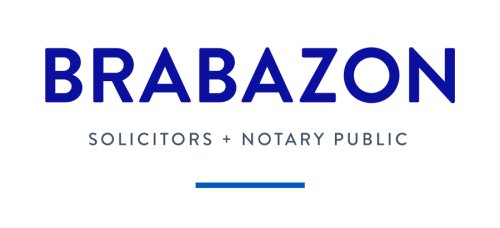Best Labor Law Lawyers in Dublin
Share your needs with us, get contacted by law firms.
Free. Takes 2 min.
List of the best lawyers in Dublin, Ireland
About Labor Law in Dublin, Ireland
Labor Law in Dublin, Ireland, governs the rights and duties between employers and employees. It encompasses a wide range of issues including employment contracts, wages, workplace safety, discrimination, and termination. This body of law ensures the protection of workers' rights while fostering a fair and productive work environment.
Why You May Need a Lawyer
There are numerous situations where individuals or businesses might seek legal advice in the realm of Labor Law. These include, but are not limited to:
- Disputes regarding employment contracts
- Unlawful termination or redundancy
- Workplace discrimination or harassment
- Wage and hour disputes
- Health and safety violations
- Negotiating collective bargaining agreements
- Maternity or paternity leave issues
Legal experts can provide valuable advice and representation to help navigate these complex issues, ensuring that your rights are upheld.
Local Laws Overview
Understanding the key aspects of local labor laws in Dublin is crucial for both employers and employees. Some important aspects include:
- Employment Contracts: Must be provided within two months of the start date, clearly outlining terms of employment.
- Minimum Wage: Complies with the National Minimum Wage Act 2000, which is regularly updated.
- Working Hours: Regulated by the Organisation of Working Time Act 1997, which sets the maximum average working week at 48 hours.
- Health and Safety: Governed by the Safety, Health, and Welfare at Work Act 2005, mandating a safe workplace environment.
- Discrimination: Prohibited under the Employment Equality Acts 1998-2015, covering multiple grounds such as age, gender, race, and disability.
- Redundancy: Entailed in the Redundancy Payments Act 1967-2014, detailing fair redundancy practices and compensation.
- Parental Leave: Regulated by the Parental Leave Act 1998-2019, granting eligible employees parental leave rights.
Frequently Asked Questions
What is the minimum wage in Dublin, Ireland?
The minimum wage is periodically updated and varies by age and employment status. As of the latest update, the minimum wage is €10.50 per hour for adults (ages 20 and above).
Can my employer terminate my contract without notice?
No, your employer must provide a notice period as stipulated in your contract or under the Minimum Notice and Terms of Employment Act 1973, unless in cases of gross misconduct.
What steps should I take if I face discrimination at work?
If you face discrimination, you can file a complaint with the Workplace Relations Commission (WRC) or seek advice from a labor law solicitor for appropriate legal action.
How many hours am I legally allowed to work per week?
The Organisation of Working Time Act 1997 states that the maximum average working week should not exceed 48 hours.
What are my rights concerning maternity leave?
The Maternity Protection Acts 1994-2004 entitle women to 26 weeks of maternity leave, with an option for an additional 16 weeks of unpaid leave.
Do I get paid for holidays?
Yes, under the Organisation of Working Time Act 1997, employees are entitled to paid annual leave, typically four weeks per year.
What can I do if I am unfairly dismissed?
You can make a claim to the Workplace Relations Commission (WRC) under the Unfair Dismissals Acts 1977-2015, or seek legal counsel for representation.
What qualifies as a health and safety violation at work?
A violation could include any failure to provide a safe working environment as per the Safety, Health, and Welfare at Work Act 2005, such as inadequate training or faulty equipment.
How can I resolve a wage dispute with my employer?
First, address the issue with your employer. If unresolved, you can bring it to the WRC or seek legal advice for further action.
Am I entitled to redundancy pay?
Yes, if you meet the criteria under the Redundancy Payments Act 1967-2014, which generally includes being employed for a continuous period of at least 104 weeks.
Additional Resources
For more information, the following resources and organizations can be helpful:
- Workplace Relations Commission (WRC)
- Citizen's Information Service
- Labour Court
- Health and Safety Authority (HSA)
- National Employment Rights Authority (NERA)
Next Steps
If you need legal assistance in Labor Law, consider the following steps:
- Document all relevant information and communication related to your issue.
- Consult with a specialized Labor Law solicitor for tailored advice and representation.
- Contact the Workplace Relations Commission (WRC) for guidance on your rights and potential claims.
- Seek support from relevant governmental bodies or organizations that specialize in labor rights.
Taking these steps will help you navigate the complexities of Labor Law and ensure your rights are protected.
Lawzana helps you find the best lawyers and law firms in Dublin through a curated and pre-screened list of qualified legal professionals. Our platform offers rankings and detailed profiles of attorneys and law firms, allowing you to compare based on practice areas, including Labor Law, experience, and client feedback.
Each profile includes a description of the firm's areas of practice, client reviews, team members and partners, year of establishment, spoken languages, office locations, contact information, social media presence, and any published articles or resources. Most firms on our platform speak English and are experienced in both local and international legal matters.
Get a quote from top-rated law firms in Dublin, Ireland — quickly, securely, and without unnecessary hassle.
Disclaimer:
The information provided on this page is for general informational purposes only and does not constitute legal advice. While we strive to ensure the accuracy and relevance of the content, legal information may change over time, and interpretations of the law can vary. You should always consult with a qualified legal professional for advice specific to your situation.
We disclaim all liability for actions taken or not taken based on the content of this page. If you believe any information is incorrect or outdated, please contact us, and we will review and update it where appropriate.















